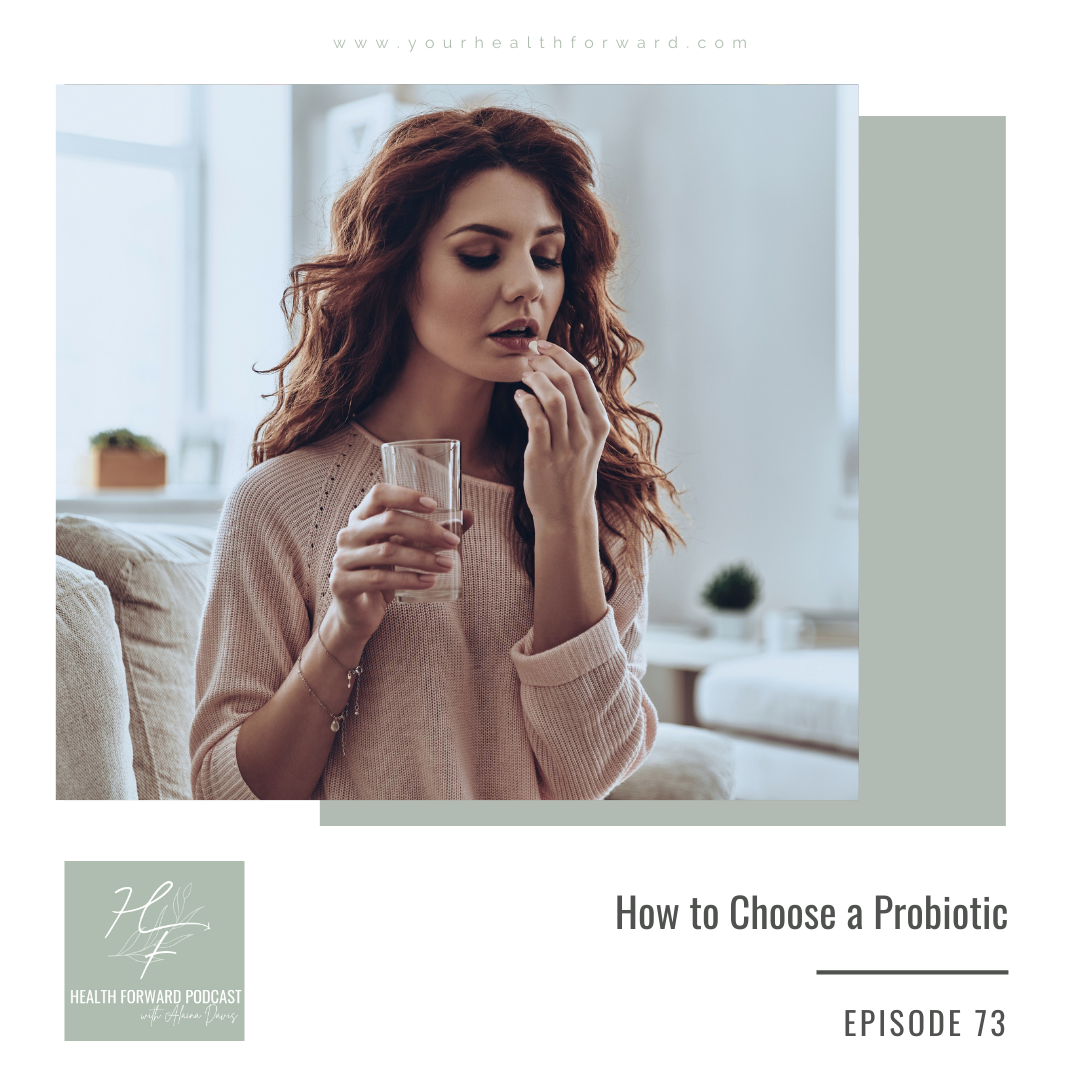How to Choose A Probiotic
Hi friends! Today’s episode is in response to a very common question that I’m asked, which is “which probiotic should I take? Which do you recommend?” I’ve talked about probiotics in several different episodes but I wanted to consolidate my thoughts into one episode for you.
LISTEN HERE: APPLE PODCASTS | SPOTIFY | STITCHER
My guess is that you probably know that probiotics are beneficial to our gut health and you may even be taking one, but I often get questions about which kind of probiotic I recommend or think is best.
Before I answer that question, I want to back up just a little bit and make sure we cover the why behind taking probiotics. I always want you to be educated on what you are putting into your body and why/if you even need it - so let’s start there.
Our gut microbiome is an ecosystem within our bodies that is made up of trillions of microbes - some that are beneficial to our health, and some that aren’t so much. Just as with any other kind of ecosystem, balance is key in order for it to thrive. The same is true for our microbiome.
Many factors of our normal day-to-day lives work against this balance. For example, a few of the most common issues are:
Standard American Diet (It’s referred to as SAD for a reason)
Poor sleep quality
Chronic stress
Overuse of medications like antibiotics, PPIs, and antidepressants (while these are necessary at times they are major contributors to an imbalanced microbiome)
There are many other factors that can contribute to imbalance in our guts, including genetics, that we can discuss in another episode. I just wanted to reiterate the point that most of us need to have probiotics in our daily regimen (whether from food sources or through a supplement).
A few important things to look for in a probiotic supplement:
Multi-strain blend that includes both lactobacillus and bifidobacterium strains
CFU count above 5-billion (with a few exceptions)
Third-party tested for quality of ingredients and end result
A couple of pro-tips taking a probiotic:
Start with a small dose and build your way up to the recommended dosage of the package
Rotate the blend that you are taking every few months to ensure you are including a wide variety of strains
A couple of my favorite brands for probiotics are Mary Ruth Organics and Klaire Labs.
Mary Ruth Organics has both a general probiotic that every member of the family can take. It’s a raw probiotic, so you will notice that the CFU count is lower and that is okay in this case. It is also a tasteless liquid and shelf-stable so it’s super easy to take and very budget-friendly.
They also have a few targeted probiotic blends that are pretty new but I haven’t personally tried those yet.
Klaire Labs is my other go-to, especially for more targeted probiotic blends. Their Therbiotic-Complete formula is one of my absolute favorites and the one that I typically recommend for most of my clients while we are working together as it has a wide spectrum of strains and a high CFU count. They also have an antibiotic support blend that I love for anyone on or coming off of antibiotics, as well as a blend called Target gbX that is specifically designed with strains that support the gut-brain connection, which is great for just about everyone but especially for those who may be dealing with mood disorders or anxiety/depression.
Both of these brands are third-party tested and you can find their products through their own websites and even have Amazon stores that include most of their products.
Before I wrap up for today, I do want to mention one caveat when it comes to taking probiotics. If you have serious gut health issues like SIBO or Leaky Gut, it isn’t a good idea to just start taking a high dose of probiotics and assume that it will fix it. If you aren’t also doing some work to heal your intestinal lining, you may actually experience worsening of your symptoms, so please make sure you are working with a professional who is trained in gut health - someone like myself or maybe a functional medicine nutritionist or physician who can guide you through the process of healing your gut.

